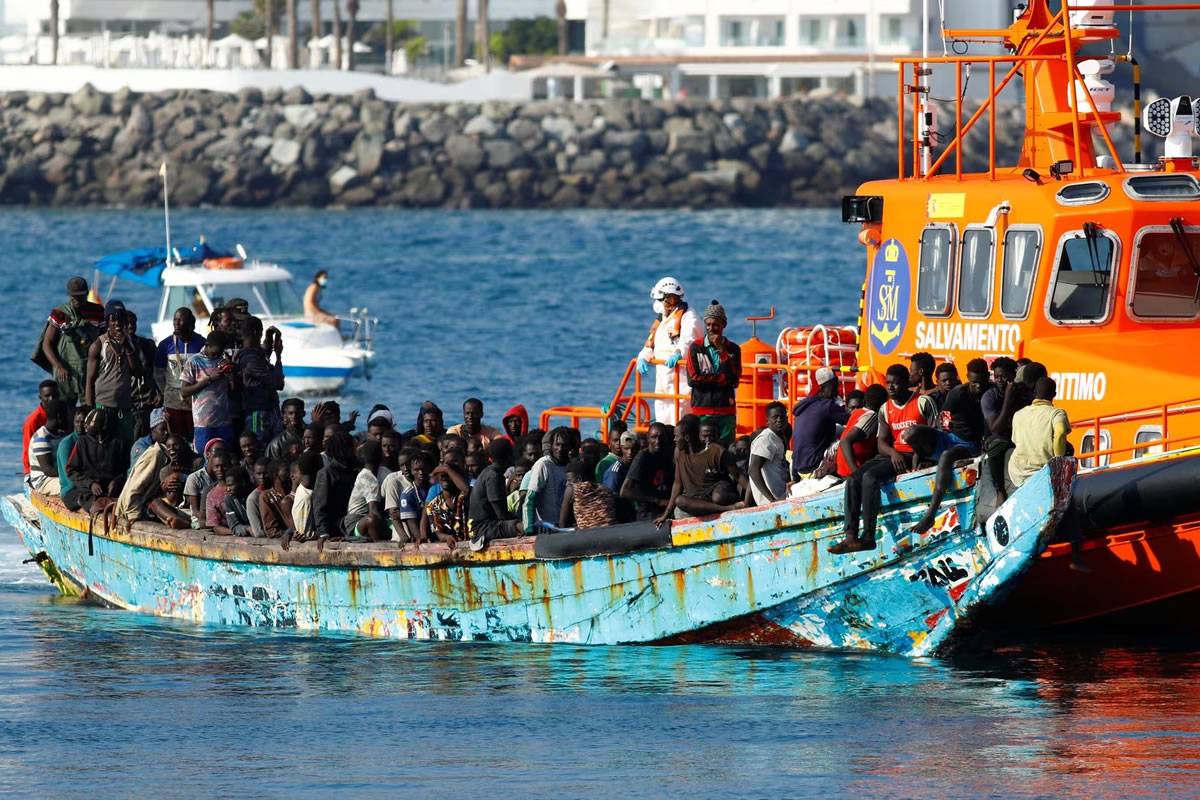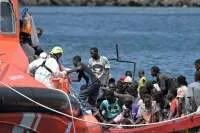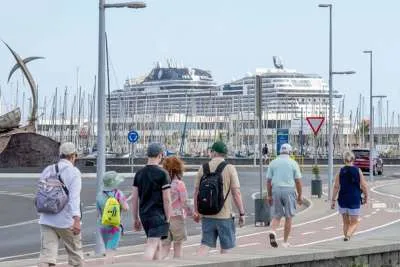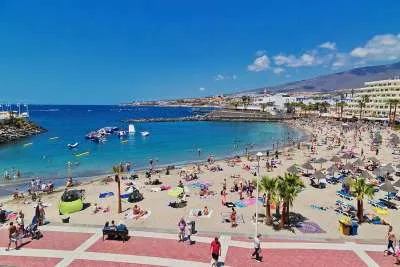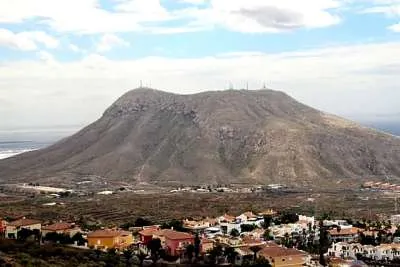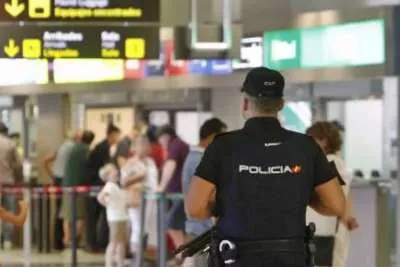6,007 people died trying to reach the Canary Islands by boat in 2023
- 11-01-2024
- National
- Canarian Weekly
- Photo Credit: 112 Canarias
A total of 6,007 people lost their lives in 2023 while attempting to reach the Canary Islands in small boats or cayucos, averaging 16 deaths per day. This staggering figure, which triples the records of the previous year, when 1,784 migrants perished on the same route, was reported by Caminando Fronteras in the latest edition of its Right to Life Monitoring report, with hundreds more people still unaccounted for.
The report, presented on Tuesday in Madrid, designates 2023 as the "deadliest" year since the organization began compiling records in 2007, with a total of 6,618 victims on maritime routes to Spain, with nine out of ten dying on the Atlantic route to the Canary Islands.
Among those who lost their lives on maritime routes to Spain in 2023 were 363 women and 384 children. Additionally, 434 people lost their lives on the Algerian route in the western Mediterranean; 147 migrants in the Strait of Gibraltar, and 30 on the Alboran route.
These statistics reflect a year in which the number of boats arriving in the Canary Islands significantly increased, detecting irregular attempts to enter Spain by sea and land, reaching a total of 56,852 people, a staggering 82.1% increase from the previous year, according to the Ministry of Interior's report. Of these, 39,910 were registered off the coasts of the Canary Islands, marking a 154.5% surge compared to 2022.
Caminando Fronteras, which regularly publishes figures of fatalities in journeys heading towards Spain based on alerts received from the sea and information from migrant families and communities, recorded 84 boats that disappeared with all occupants on board throughout the past year.
The months of October (2,370), June (1,197), and November (1,023) accounted for the majority of the victims. Among the deceased were people from 17 countries: Algeria, Bangladesh, Cameroon, Ivory Coast, Gambia, Guinea Conakry, Comoros Islands, Mali, Morocco, Mauritania, Palestine, the Democratic Republic of the Congo, Senegal, Syria, Sudan, Tunisia, and Yemen.
The Canary route is the most lethal in the world
The data once again highlight the Atlantic route as the "deadliest migration region in the world" and draws attention to the recent increase in departures from more distant locations such as Mauritania, Senegal, and Gambia. These numbers reflect the rise of cayucos from Senegal since last June, a consequence of the country's significant social and political instability, as more than half of the recorded mortal victims on the way to the Canary Islands (3,176) originated from Senegal.
Throughout the past year, the "longest and most dangerous" route, which leads boats away from the coastal reference point into the ocean towards El Hierro, became more active due to increased controls along the coasts of Senegal and Mauritania. El Hierro, the most southerly and westerly of the islands, was overwhelmed since mid-summer by the relentless landings, despite the cooperative efforts from both the authorities and numerous residents, necessitating external assistance.
The state's response, especially the efficient speed in diverting adult migrants to other islands, mitigated the effects of a crisis that was even compared to those occurring in Lampedusa, Italy. However, the data demonstrates that the island most profoundly impacted by the worst year in the history of the Atlantic route was El Hierro.
Following Senegal, migrants who died in 2023 attempting to reach the archipelago came from the coastal stretch between Agadir (Morocco) and Dajla (Western Sahara), accounting for 1,418 mortal victims. From Gambia, 1,018 of the deceased travellers originated, and from Mauritania, 395 individuals lost their lives.
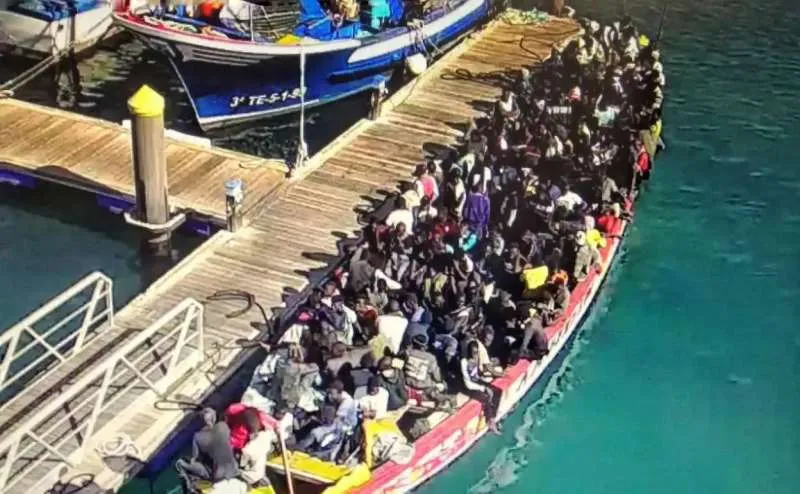
Lack of Emergency Responses
According to Caminando Fronteras, in many of the documented tragedies, search and rescue operations were not activated, or if they were, there was a "significant delay" that jeopardised people's lives. Furthermore, specialised services often only intervened at the moment of rescuing people on the boat, neglecting continued efforts to search for possible survivors or recover bodies.
The use of passive search methods has increased, involving issuing alerts to commercial and recreational vessels patrolling the area to locate the boat, rather than deploying dedicated search resources.
The coordinator and author of the report, Helena Maleno, denounced that the "omission of the duty to rescue" has been established as a migration control practice at the borders of the Spanish territory.
According to her analysis, agreements with countries such as Morocco are based on the externalisation of borders, leading Spain to "pressure" for rescues to be carried out by these other states, even if they lack sufficient resources. Therefore, Spain, in her opinion, does not allocate all the resources at its disposal. "The capacity to save lives is there. If we implemented the same means as when we talk about cruises, fishing vessels, or European people's boats, this massacre would be significantly reduced," she stated.
During the presentation, Senegalese activist Pape Sarr also participated, criticizing Europe for turning a blind eye to the political situation in his country due to economic interests, "while sending Frontex to support Senegalese coast guards to prevent boat departures."


